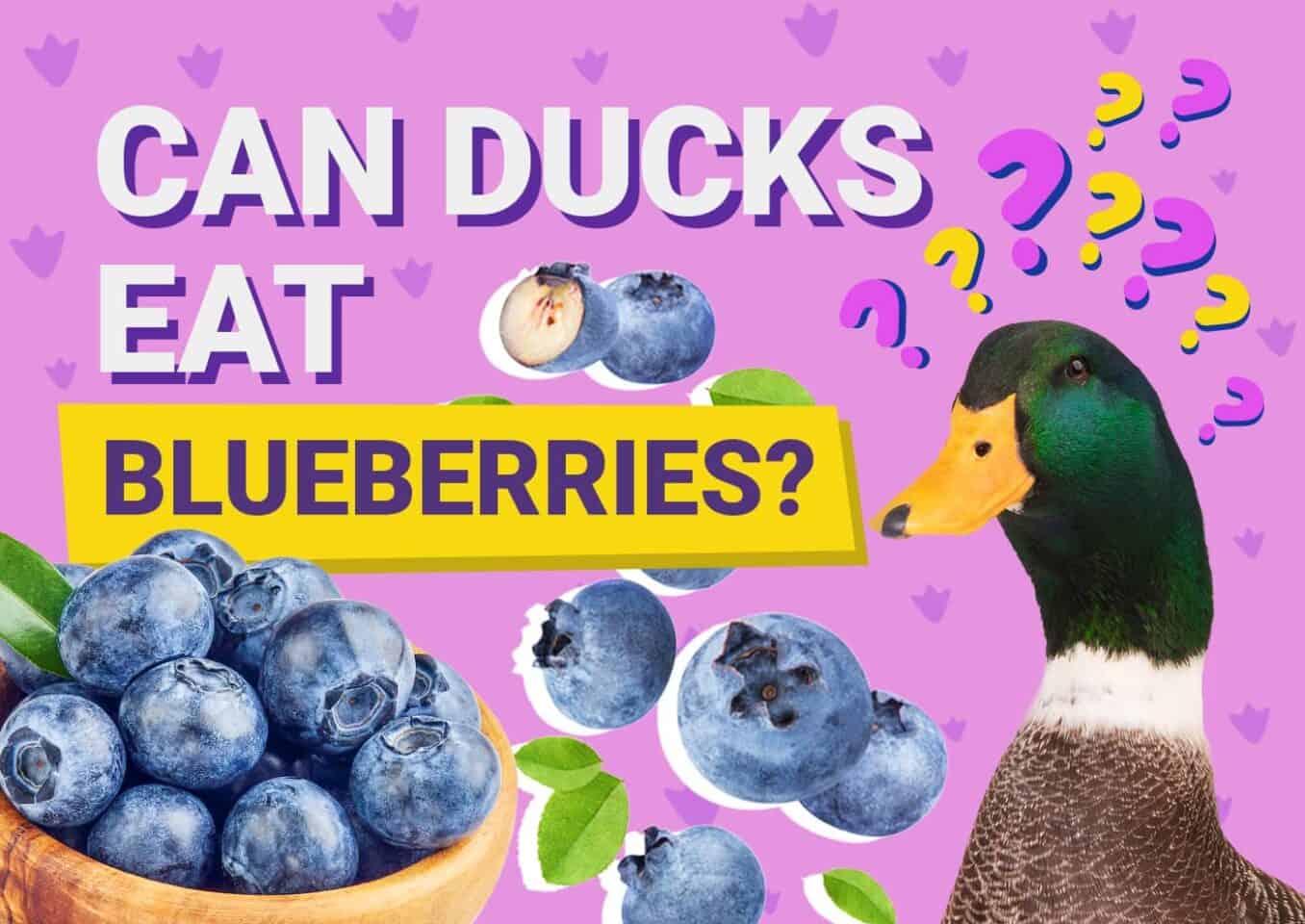If you’ve ever picnicked in a park, you have probably shared some of your food with the local ducks at least once or twice. Instead of processed foods, you should try to feed ducks foods that are more similar to foods they might find and eat in the wild. Blueberries are an excellent snack for ducks. This article will discuss the answers to other questions you may have, such as the nutritional benefits of blueberries for ducks, how often you should give them blueberries, and foods you should avoid feeding them.

What Nutrients Are in Blueberries?
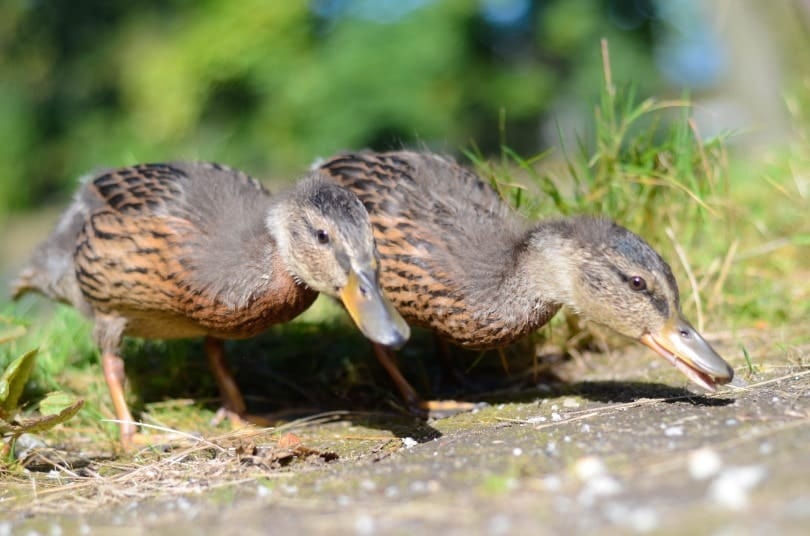
Blueberries are considered a superfood for humans. Not only are they very low in calories, but they are very rich in antioxidants and taste great in smoothies. But what about ducks? Let’s explore some of the different nutrients in blueberries and how they benefit ducks.
Vitamin C
Ducks and other poultry are capable of producing their own vitamin C, so it is not necessary to include vitamin C in a duck’s diet. However, vitamin C is useful to birds under stress. There is also some evidence to suggest that vitamin C can improve duck egg production and quality.
Vitamin K1
Vitamin K1 is an important compound of vitamin K. Vitamin K contributes to normal blood clotting. It also contributes to ducks’ bone health, just as it does in humans.
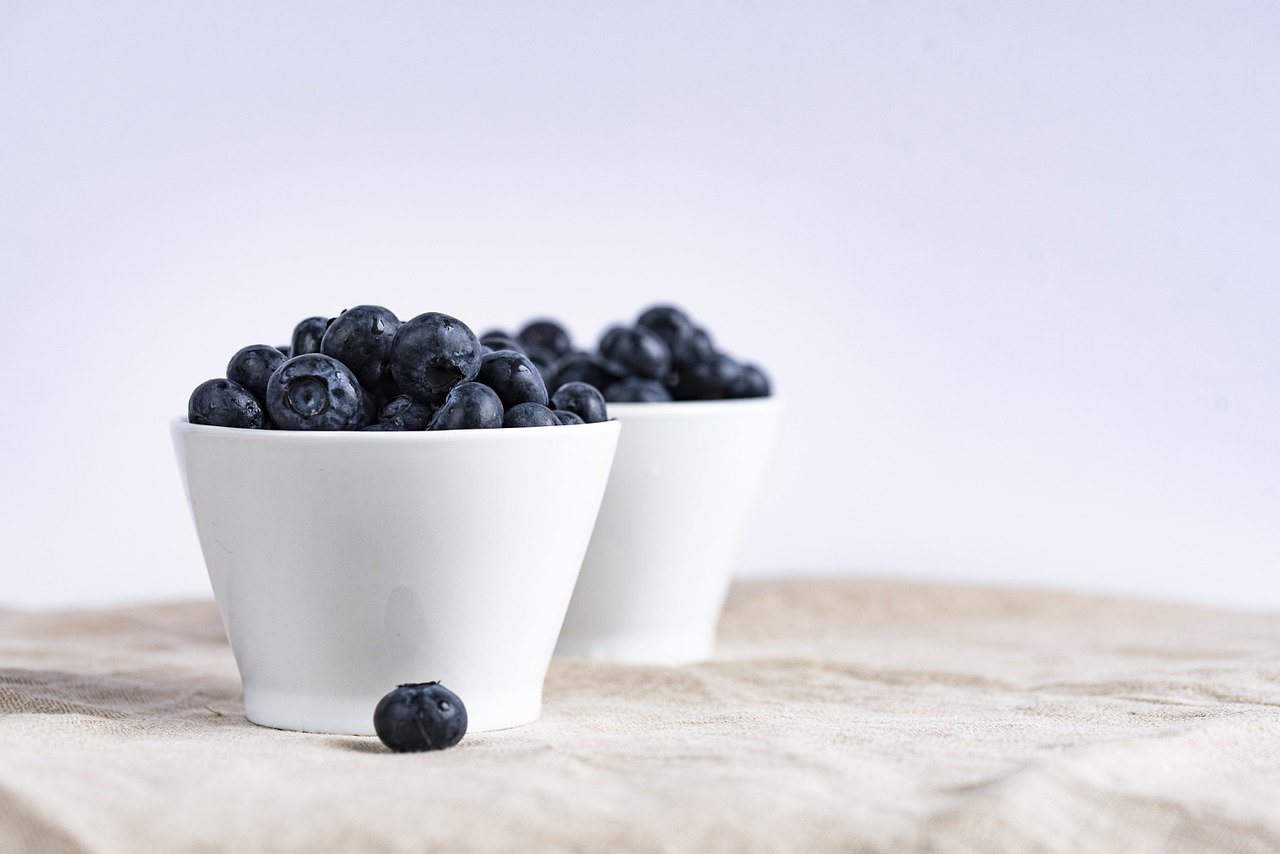
Vitamin E
Vitamin E plays an important role in a duck’s diet. Poultry deficient in vitamin E may develop wry neck, a condition where the bird is incapable of holding its head up on its own. Left untreated, wry neck can be fatal, as affected birds often can’t eat or drink on their own. This condition most frequently affects ducklings, though adults can also develop it.
Vitamin B6
Ducks need vitamin B6, or pyridoxine, for their nervous system to function properly. Ducklings that don’t get enough vitamin B6 will have poor growth and may exhibit nervous behavior.

How Often Should Ducks Eat Blueberries?
Although blueberries are extremely nutritious and have many benefits for ducks, they should still be given in moderation. Just like humans, ducks require a varied diet to get all of the nutrients they need. Think of it this way: you probably wouldn’t eat dessert with every meal, so neither should your ducks! Since blueberries and other fruits are considered treats, they should only make up about 10% of a duck’s diet.
What Should I Not Feed Ducks?
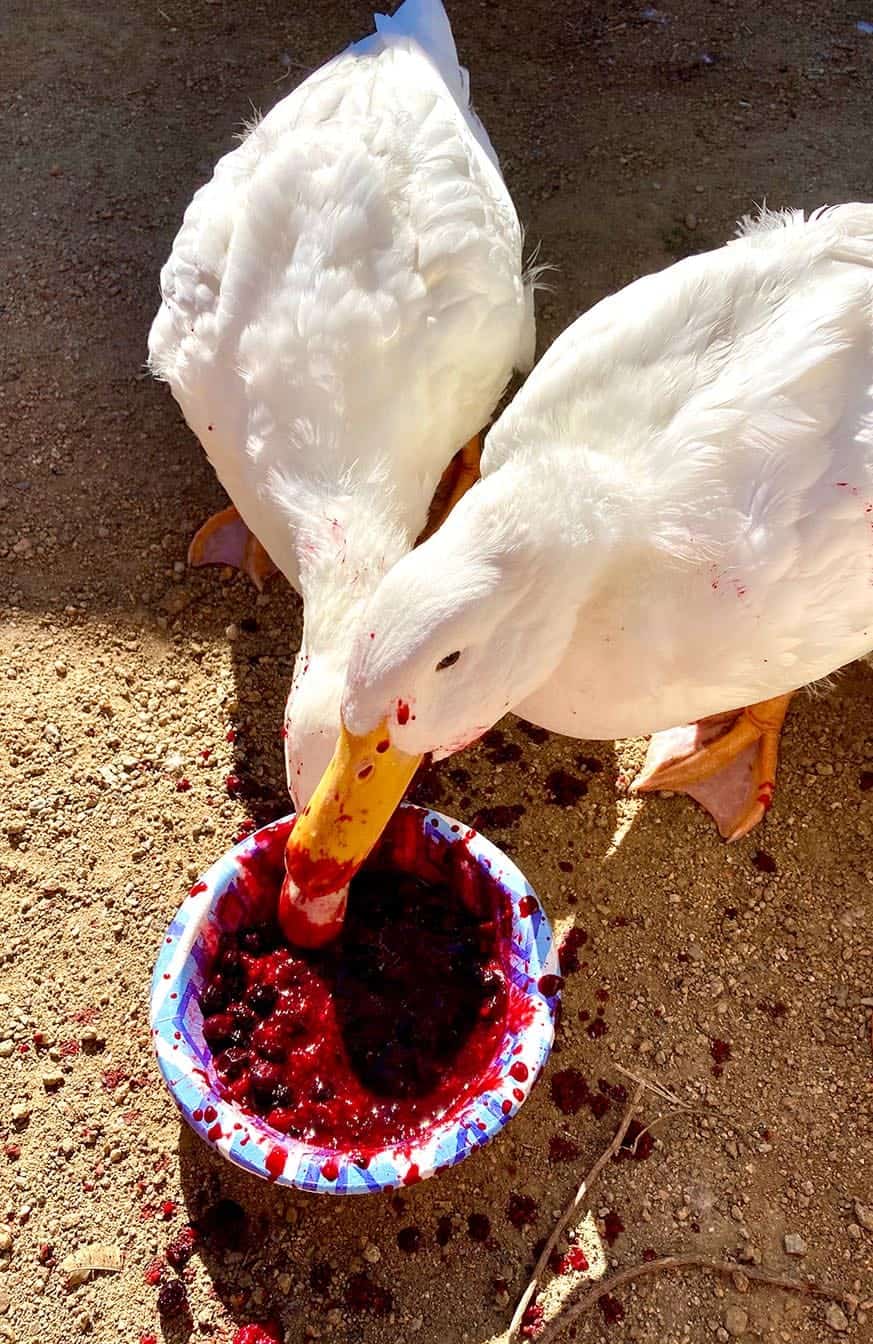
Feeding wild ducks can be a great activity for the whole family; it’s a chance to get your kids outdoors and interacting with wildlife, and ducks tend to be much less aggressive than geese. However, the types of food that humans tend to feed ducks aren’t actually very good for them. Bread, crackers, popcorn, and similar types of food are bad for ducks because they do not provide much nutritional value. Ducklings could become malnourished, which could harm their growth.
But you shouldn’t assume that ducks can eat a particular food just because it can be found in nature; there are also some fruits and vegetables that ducks should not eat. Below is a list of foods you should avoid feeding to ducks.
- Citrus fruits: Citrus, like oranges and grapefruit, may affect ducks’ calcium absorption and in turn thin their eggshells.
- Avocados: Avocado pits and skins contain a toxin called persin.
- Stone fruits: The pits of stone fruits (as well as the seeds of other fruits like apples and pears) contain small amounts of cyanide, which could be harmful to ducks. If you remove the pits, the flesh is safe for them to eat.
- Spinach: Like citrus, spinach interferes with calcium absorption, so it should only be fed to ducks in small amounts.
- Iceberg lettuce: Iceberg lettuce can cause diarrhea in ducks if given in large amounts. Additionally, iceberg lettuce doesn’t provide very much nutritional value.
- Eggplant, green tomatoes, and white potatoes: These plants are members of the nightshade family and contain solanine. They are toxic to ducks.
- Rhubarb leaves: Rhubarb leaves contain oxalic acid. Not only is oxalic acid toxic, but feeding your ducks rhubarb leaves can also result in thin-shelled eggs.
- Onions: Onions can cause jaundice and anemia in your ducks.
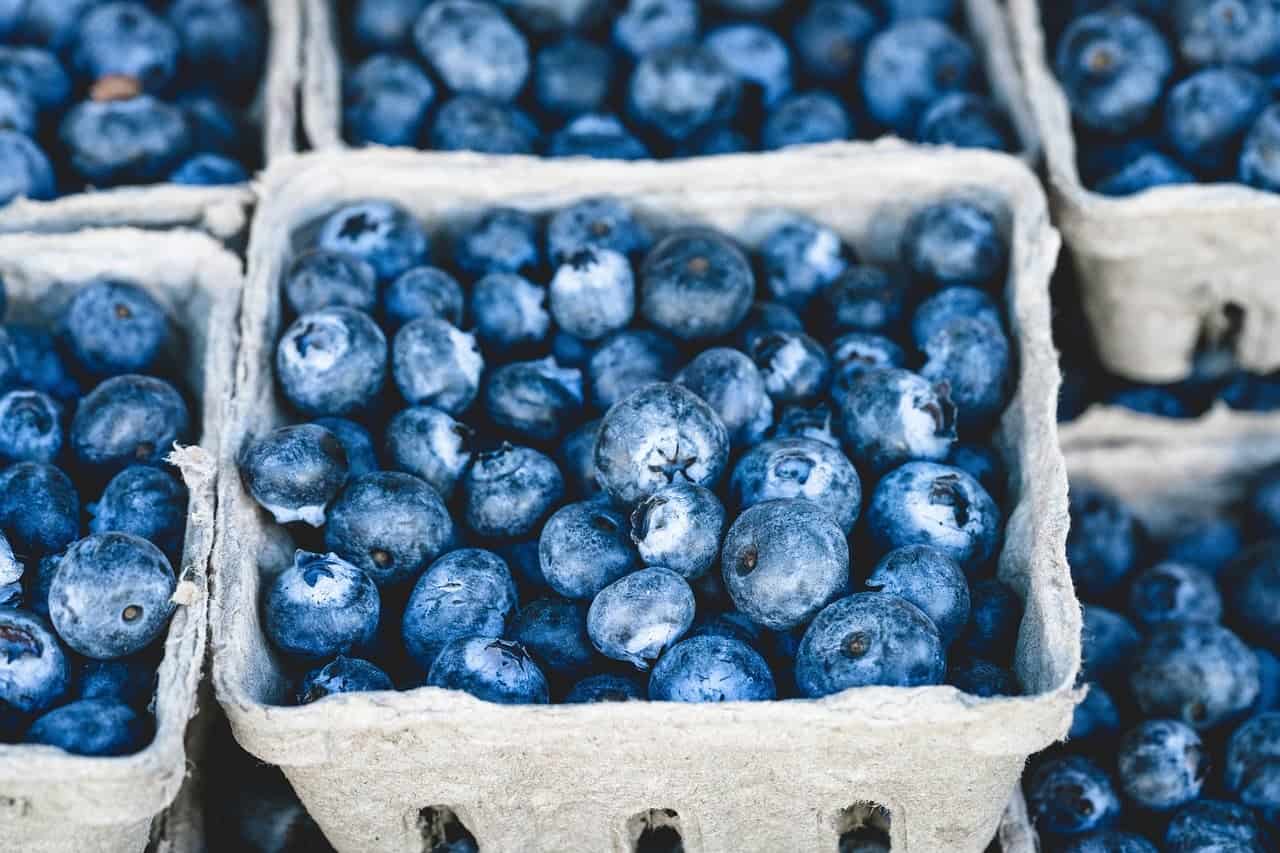

Final Thoughts
In conclusion, blueberries are a great treat for ducks, but they should not be eating them all the time. If you raise ducks, ensure that your ducks are eating a well-balanced diet and that treats like blueberries are given only after they have eaten their regular feed. If you like to feed wild ducks, be mindful of how much food you are giving them, especially if your local park is frequented by visitors such as yourself who love to feed the ducks. They will appreciate the treat, but overfeeding can lead to health problems down the road.
Featured Image: Pixabay
